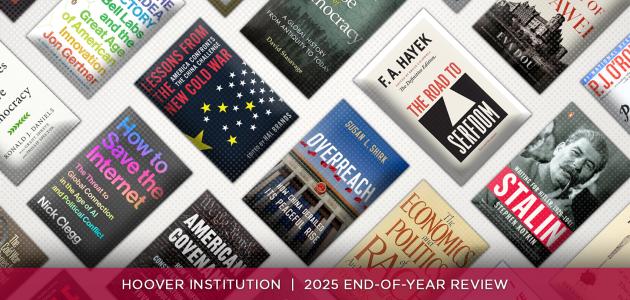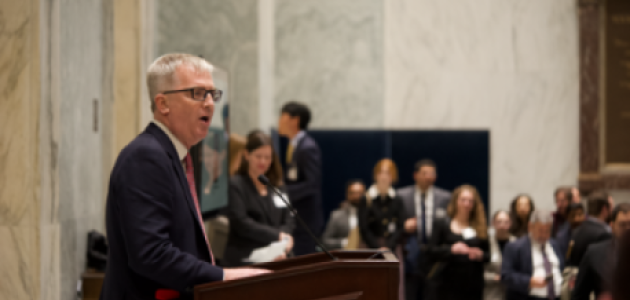In their new book Between Dictatorship and Democracy: Russian Post-Communist Political Reform (Carnegie Endowment for International Peace, 2004) Hoover senior fellow Michael McFaul, Nikolai Petrov, Andrei Ryabov, and their collaborators examine the current government of Russia.
For the past two decades, Russian leaders have attempted to launch a series of political reforms purportedly aimed at moving the country toward democracy. Have these reforms taken hold? If not, what kind of political regime will be sustained in post-Soviet Russia? How has Vladimir Putin's rise to power influenced the country's course? The authors seek to give a comprehensive answer to these fundamental questions about the nature of Russian politics.
McFaul, the Peter and Helen Bing Senior Fellow, is also a senior associate at the Carnegie Endowment and an associate professor of political science at Stanford University. He is the author of several books including Russia's Unfinished Revolution: Political Change for Gorbachev to Putin. Petrov is a scholar-in-residence at the Carnegie Moscow Center. Ryabov is a scholar-in-residence and cochair of the Russian Domestic Politics and Political Institutions Program at the Carnegie Moscow Center. Other contributors include Mikhail Krasnov, Vladimir Petukhov, Viktor Sheinis, and Elina Treyger.
Between Dictatorship and Democracy:
Russian Post-Communist Political Reform
by Hoover Fellow Michael McFaul, Nikolai Petrov, and Andrei Ryabov
ISBN: 0-87003-206-2 $24.95 paperback
366 pages March 2004













